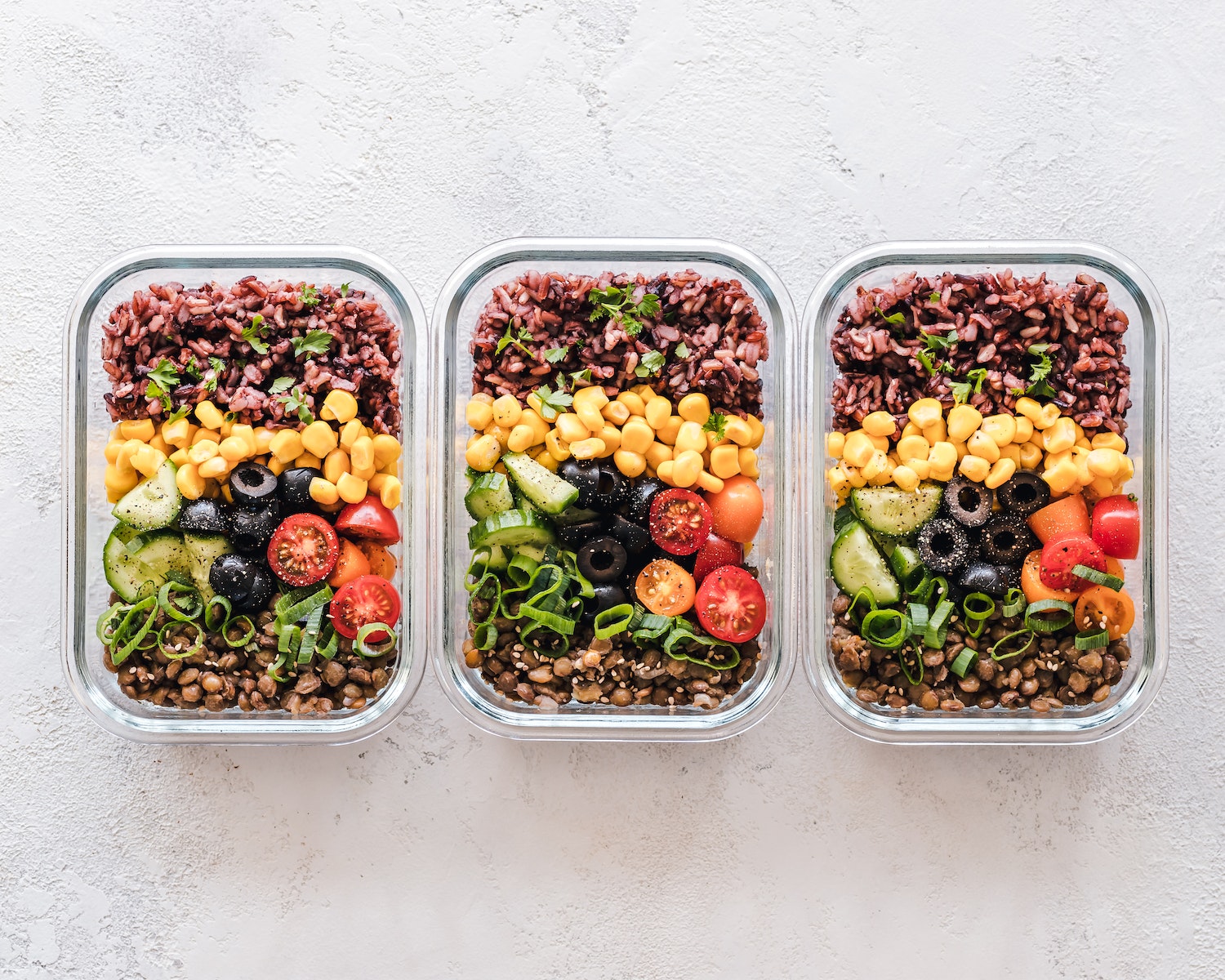Developing a healthy relationship with food is a vital aspect of overall well-being. In our modern lives, it’s easy to fall into unhealthy eating patterns or disconnect from the true nourishment that food can provide. In our previous blog we wrote about Health Benefits of Fiber: Weight Loss, Gut Health, Happiness. In this blog post, we will explore ten effective tips for cultivating a healthy relationship with food through mindful eating. By incorporating these tips into your daily life, you can establish a more mindful and positive connection with food, leading to improved well-being and a greater appreciation for the nourishment it provides.
What is Mindful Eating?
 Before diving into the tips, let’s understand what mindful eating entails and its numerous benefits.
Before diving into the tips, let’s understand what mindful eating entails and its numerous benefits.
Mindful eating is a practice that involves being fully present during mealtimes, focusing on the sensory experience of eating, and maintaining a non-judgmental attitude towards food.
It differs from traditional eating habits, which often involve mindless eating, emotional eating, or following strict diets.
By adopting mindful eating, you can develop a positive and sustainable relationship with food.
Tip 1: Learning to Listen to Your Body
 To cultivate a healthy relationship with food through mindful eating, it’s crucial to reconnect with your body’s hunger and fullness cues.
To cultivate a healthy relationship with food through mindful eating, it’s crucial to reconnect with your body’s hunger and fullness cues.
Slow down and pay attention to the physical sensations before, during, and after eating.
Are you truly hungry or eating out of habit or emotions?
By tuning in to your body’s signals, you can make conscious choices about when to start and stop eating, promoting a balanced intake of nutrients.
Tip 2: Practicing Mindful Meal Planning
 One of the keys to mindful eating is planning your meals in advance.
One of the keys to mindful eating is planning your meals in advance.
By taking the time to create a balanced and nourishing meal plan, you can ensure that you’re providing your body with the nutrients it needs.
Include a variety of food groups such as whole grains, lean proteins, fruits, vegetables, and healthy fats.
Having a well-thought-out meal plan eliminates the guesswork and reduces the likelihood of impulsive and unhealthy food choices.
Tip 3: Mindful Grocery Shopping
 Mindful eating begins at the grocery store.
Mindful eating begins at the grocery store.
Make a shopping list based on your mindful meal plan and stick to it.
Avoid wandering aimlessly down the aisles or succumbing to tempting processed foods. Instead, focus on fresh, whole foods that will nourish your body.
By being intentional with your grocery shopping, you set yourself up for success in maintaining a healthy relationship with food.
Tip 4: Creating a Mindful Eating Environment
 Transform your mealtime environment into a space that promotes mindful eating.
Transform your mealtime environment into a space that promotes mindful eating.
Set the table, dim the lights, and eliminate distractions such as electronic devices.
Create a calm and peaceful atmosphere where you can savor your food without rushing.
By establishing a mindful eating environment, you can fully engage with the sensory experience of eating and appreciate the nourishment it provides.
Tip 5: Slow Down and Savor Each Bite
 In our fast-paced world, we often rush through meals, barely registering what we’re eating.
In our fast-paced world, we often rush through meals, barely registering what we’re eating.
To cultivate a healthy relationship with food, practice slowing down and savoring each bite.
Chew your food thoroughly, paying attention to its flavors, textures, and aromas.
By eating mindfully, you become more attuned to your body’s signals of satisfaction, leading to a more enjoyable and nourishing experience.
Tip 6: Cultivating Gratitude for Food
 Developing gratitude for the food you consume is an essential aspect of mindful eating.
Developing gratitude for the food you consume is an essential aspect of mindful eating.
Before starting a meal, take a moment to express gratitude for the nourishment it provides.
Reflect on the effort that went into growing, preparing, and delivering the food to your table.
By cultivating gratitude, you develop a positive and appreciative mindset towards food, fostering a healthy relationship.
Tip 7: Mindful Portion Control
 Understanding portion sizes and practicing moderation is crucial for maintaining a healthy relationship with food.
Understanding portion sizes and practicing moderation is crucial for maintaining a healthy relationship with food.
Use visual cues to guide your portion sizes, such as using smaller plates and bowls.
Listen to your body’s cues of fullness and avoid overeating.
By practicing mindful portion control, you can nourish your body without feeling deprived or excessively indulgent.
Tip 8: Managing Emotional Eating
 Emotional eating can derail our efforts to cultivate a healthy relationship with food.
Emotional eating can derail our efforts to cultivate a healthy relationship with food.
Recognize the emotional triggers that lead to unhealthy eating habits and find alternative coping strategies.
Engage in activities that bring you joy, such as going for a walk, practicing mindfulness meditation, or seeking support from loved ones.
By managing emotional eating, you can nourish your body in a way that supports your overall well-being.
Tip 9: Mindful Eating in Social Situations
 Eating mindfully doesn’t mean sacrificing social experiences.
Eating mindfully doesn’t mean sacrificing social experiences.
When dining out or attending social gatherings, apply mindful eating principles.
Take the time to select foods that align with your mindful eating goals.
Savor each bite and engage in meaningful conversations.
By making mindful choices while enjoying social situations, you can strike a balance between nourishing your body and enjoying the company of others.
Tip 10: Practicing Consistency and Flexibility
 Consistency is key when cultivating a healthy relationship with food through mindful eating.
Consistency is key when cultivating a healthy relationship with food through mindful eating.
Make a commitment to regularly practice mindful eating techniques and be patient with yourself as you develop this habit.
At the same time, allow room for flexibility and occasional indulgences.
It’s essential to find a balance that works for you, allowing yourself to enjoy your favorite foods while maintaining mindful eating practices.
The Benefits of Cultivating a Healthy Relationship with Food through Mindful Eating
 Cultivating a healthy relationship with food through mindful eating brings numerous benefits.
Cultivating a healthy relationship with food through mindful eating brings numerous benefits.
By developing an awareness of your body’s needs, you can improve both your physical and mental well-being.
Mindful eating enhances self-awareness, fostering a deeper connection with your body and the food you consume.
Over time, this practice can have long-term positive effects on your overall health and relationship with food.
Conclusion
In conclusion, cultivating a healthy relationship with food through mindful eating is a transformative journey.
By implementing the ten tips discussed in this blog post, you can develop a more mindful approach to nourishing your body.
Embrace the practice of mindful eating, listen to your body, and savor each bite.
By doing so, you’ll not only enhance your overall well-being but also establish a positive and sustainable relationship with food—a healthy relationship with food through mindful eating is within your reach.
Start today and witness the profound impact it can have on your life.
Are you ready to take control of your relationship with food and embark on a journey toward a healthier you?
Mindful eating is a powerful practice that can transform the way you approach food, promoting a deeper connection with your body and the nourishment it needs.
But what if I told you there's an even more effective way to unlock your metabolism and achieve all-natural weight loss without the need for diets or exercise?
Introducing the PrimaJust weight loss method—a revolutionary approach that allows you to shed 1-3 pounds per week automatically.
Say goodbye to restrictive diets and hello to a sustainable, enjoyable way of achieving your weight loss goals.
Download our still free report now and discover The Exact Method to Unlock Your Metabolism for All-Natural Weight Loss.
Your journey to a healthier, happier you starts today!
[Source]Free Report
Spread the word by sharing this post if you found it helpful.
Get inspired by these thought-provoking related blog posts
-
6 Tips for Developing a Healthy Relationship with Food
A healthy relationship with food is crucial for overall well-being and a positive mindset. Unfortunately,…
-
Mindful Eating and Portion Control: Key Link for Healthy Living
Mindful eating and portion control are essential components of a healthy lifestyle. By understanding the…
-
Social Media Effect on Eating Disorder: 6 Healthy Eating Tips
In today's digital age, social media plays a significant role in shaping our perceptions of…














